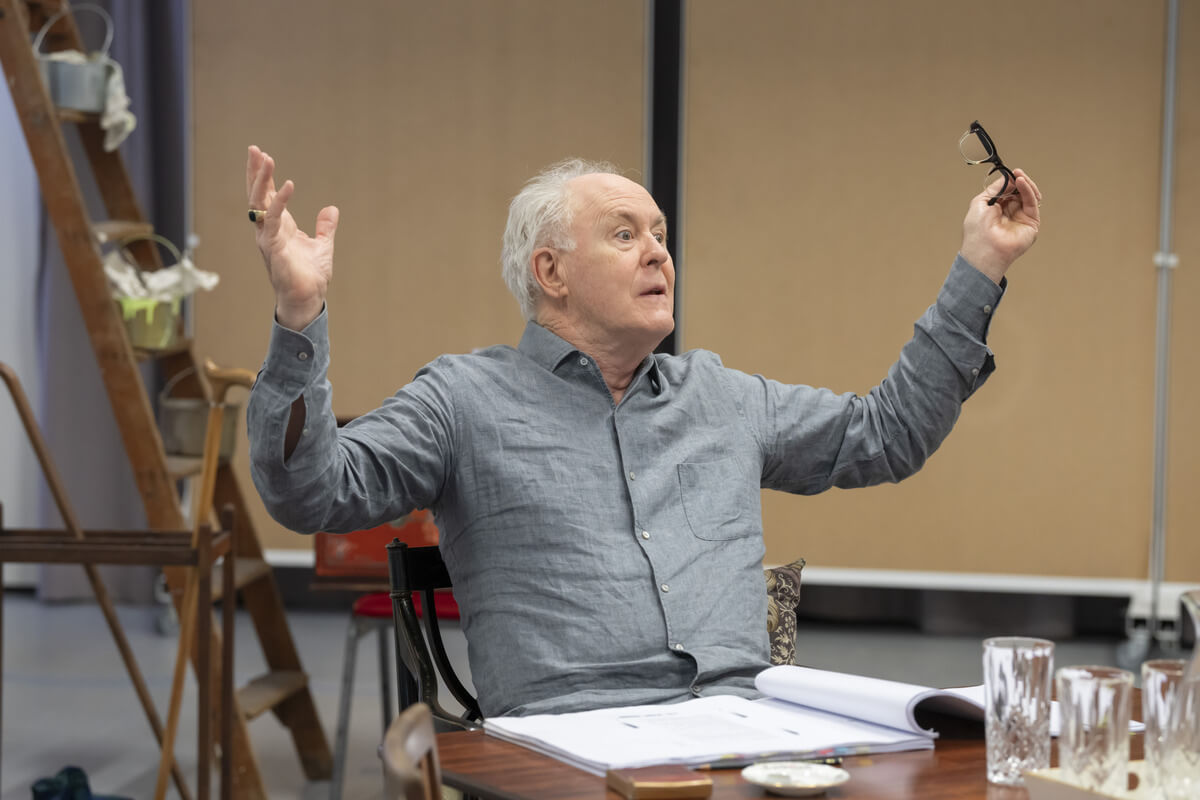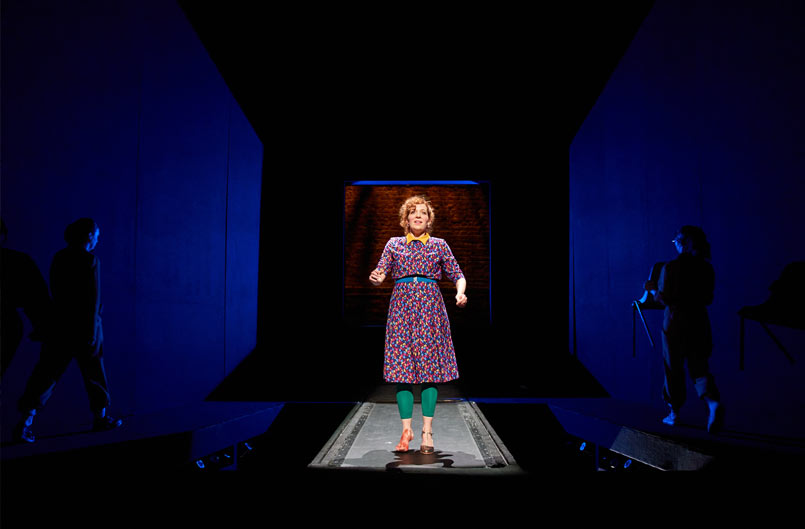Two, possibly ethereal yet bureaucratic figures (Bertrand and Morvan), sit in judgment of another more worldly and unworthy type (Croker) — the name is typical of Beckett’s use of unkind puns — who is poised to jump from a 6th floor window. They engage in jocular banter as they ruminate the various merits (and otherwise) provided in depositions from those ‘in the know’, about the forlorn figure who appears frozen in time on his ledge. The piece is witty and playful and gives the actors bucketloads to play with... which they do with relish.
The better known, Endgame which begins after a short intermission, is designed to irritate and vex both the players and audience in equal measure. Centre stage, sits Hamm (Cumming as a near-blind, wheelchair-bound tyrant), whilst scurrying around in response to barked instructions and wheedling, is his servant Clov (Radcliffe). Also in the mix, are Hamm’s equally abused legless parents Nagg and Nell (Karl Johnson and Jane Horrocks respectively) who exist, in lidded bins from which they anticipate their deaths and periodically recount more joyful exploits from a time when the world was whole. It is a gruesome, unpleasant affair which strains everyone’s patience and love of life. Pointless physical actions and repetition, serve to reinforce the mental dominance and fragility of the ugly co-dependency of everyone trapped in the scene.
In truth, I’ve always loathed the piece and found myself wishing that Beckett had made more of Rough for Theatre II, where Cumming and Radcliffe’s double act shone nearly as brightly as the lights they were required to switch on and off every few moments.

 Endgame (played after the rarely staged, but considerably more satisfying Rough for Theatre II) has been a box office draw for The Old Vic this season, where Daniel Radcliffe and Alan Cumming deliver Beckett’s quirky tales with sufficient spark and comedic zest, to demonstrate an affinity with the oft impenetrable material.
Endgame (played after the rarely staged, but considerably more satisfying Rough for Theatre II) has been a box office draw for The Old Vic this season, where Daniel Radcliffe and Alan Cumming deliver Beckett’s quirky tales with sufficient spark and comedic zest, to demonstrate an affinity with the oft impenetrable material.


 As its title alludes, SHOE LADY is a play which revolves around a woman (Viv, played by Katherine Parkinson) who is impacted by footwear — most especially, the loss of one half of a pair of shoes. Unfortunately, it is her only pair of shoes, so the loss assumes a profound significance and the results, whilst often comic, are ultimately calamitous.
As its title alludes, SHOE LADY is a play which revolves around a woman (Viv, played by Katherine Parkinson) who is impacted by footwear — most especially, the loss of one half of a pair of shoes. Unfortunately, it is her only pair of shoes, so the loss assumes a profound significance and the results, whilst often comic, are ultimately calamitous.